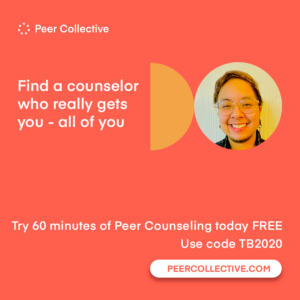You might have heard the term neurodivergent used in relation to mental health, or its antonym, neurotypical, but do you really understand what it means? Neurodivergent is sometimes used interchangeably with mentally ill, but that’s not quite the case.
Neurodiversity, which Jessie Paege recently wrote about her experience of, refers to any neurological differences that come from a deviation from natural genes. Some common conditions include ADHD, dyslexia, and autism, but can include any neurological condition that people are born with fall under this umbrella.
The defining point to come from scientific research into neurodivergency is that these conditions come from genetic makeup and environmental influences, rather than disease or injury.

Although there is increasing scientific support for theories around being neurodivergent, not all medical fields support the idea that people are born with neurodivergent conditions. The research is therefore still ongoing into what neurodivergency means when it comes to treatment and support, with more attention being given to ideas from neurodivergent people themselves.
Speaking of a cure when it comes to neurodivergency is being increasingly dismissed as an insulting response. For example, people with autism often view it as part of their identities and don’t want their autism cured. Instead, they ask people to make necessary adjustments so as to best support them with their condition, rather than trying to eradicate it entirely.
Nonetheless, although neurodivergent conditions don’t need to be cured, they still can make life difficult for people living with them in a world designed with neurotypical people in mind. That’s why work is still being done to find more ways to support neurodivergent people and makes their lives easier in a variety of ways.
If you’ve been diagnosed with a neurodivergent condition, it can be hard to wrap your head around. Know that there is help out there and communities ready to support you through any changes that might come with your diagnosis.
The first step to take after receiving the news is to acquaint yourself with these communities. The National Autistic Society, the ADHD Foundation, and Exceptional Individuals are all UK-based organisations that are ready to support you with your diagnosis as and when you need it. No matter what condition you have, there is sure to be a network out there ready to accept you.
When you’re ready, inform your friends and family as well. As the people closest to you, they should be ready to support you and make any accommodations that can help make your life easier.
If you think you might need support in your workplace, know that you’re protected by the Equality Act of 2020, entitling you to expect your employee to make any necessary adjustments in the workplace that you might need.
Exceptional Individuals also has a workplace assessment tool to help you work out what adjustments might be useful to you.
It’s quite common for people to be diagnosed with neurodivergent conditions later on in life, particularly for women. Getting a diagnosis as a teenager or as an adult doesn’t make your experiences any less valid and you still deserve to get the support you need.



